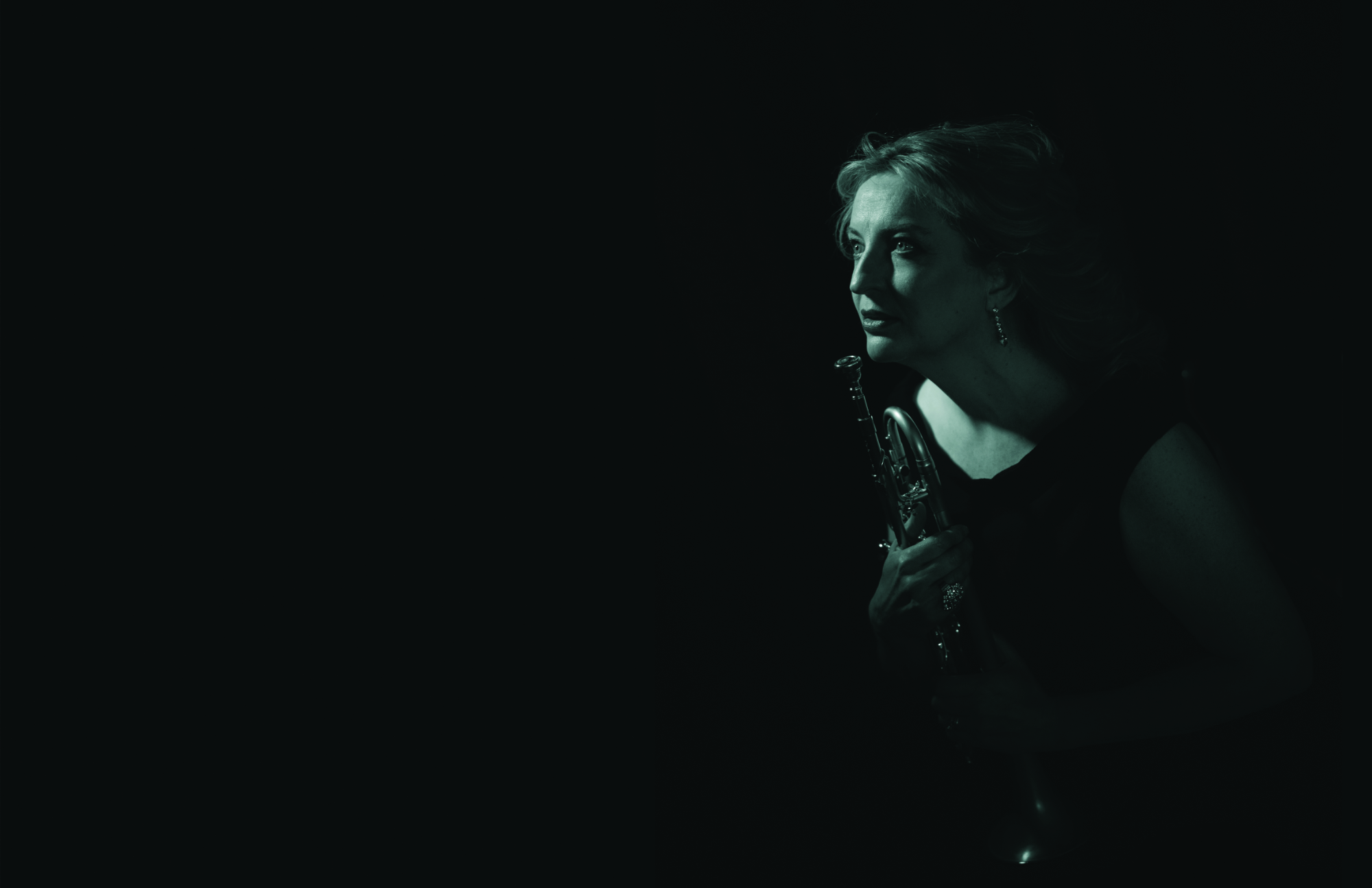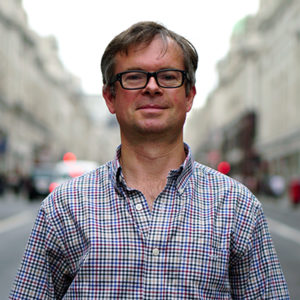Sue Richardson Interview

Trumpeter and vocalist Sue Richardson is best known for her Chet Baker tribute show, Too Cool, that interweaved a biographical narrative with classic tunes he’s associated with, together with some of his less well-known compositions. The successful show resulted in a critically acclaimed album released back in 2013. For her new show she’s chosen bebop trumpeter Clifford Brown. Sue explains, “My favourite Clifford album is the one that he did with Zoot Sims, Jazz Immortal, which is why I’ve called my show ‘Jazz Immortal’. I love the arrangements by Jack Montrose, who was Chet Baker’s arranger. He recorded it out West. So it’s quite funny, the album that really got me into Clifford was much more West Coast than East Coast.”
The Clifford Brown show is also biographical, drawing on tunes associated with him, including songs performed by vocalists Sarah Vaughan, Helen Merrill and Dinah Washington, with Sue Richardson singing the vocal parts. But it was the trumpet playing that drew her to the project. “I deliberately chose it because I knew it would be a technical challenge. There’s not many better trumpet players than Clifford Brown. He’s got the melodic ideas, he writes, he’s got the harmonic ideas, and technically he’s always spot on. It’s rare that you hear him make a mistake, whereas you can listen to Miles and as he’s trying to get his ideas out, there are mistakes and fluffs. And it’s the same with Chet. But with Clifford it’s so polished. That’s my challenge. And I knew that that would be a good thing, to work on a different part of my technique, having worked on Chet for so many years and played in that style. It’s a real flip to then try and change my sound and my approach to improvising, and my approach to playing a head.”
“Obviously a lot more people know about Chet Baker so they came because it was Chet Baker, and obviously people don’t know Clifford Brown as he’s not so well known. What’s really interesting is that the first few times we did it, I’d get to I Remember Clifford, which I do as the penultimate number, then I say ‘at the age of 25 he had a car crash and died’, and the audience just gasp because they don’t know about him. I just assumed that they would know, so I’ve had to be really careful with the narration and how I end the show.”
By contrast, her other main project is Screen Sirens. “It’s completely different to the Clifford show. The Clifford one is about the music and the improvising, the Screen Sirens show is about women from Hollywood and what it was like to be an actress, including some of their stories. A lot of the women were a lot stronger and tougher than you might give them credit for, and then there are some of the awful things that happened which are told through the popular songs of the time.”
Another project that she’s working on is with pianist Alex Webb. “I’ve been working with Alex on Cafe Society Swing for a good few years now. It’s about the jazz club in New York that Barney Josephson started around the Second World War. It’s a fascinating jazz club because his brother was an active communist and worked against the fascists. Cafe Society was the first integrated jazz club with black and white musicians sitting next to each other on stage. The show is brilliant and we’ve just done a two week run at Stratford East, with China Moses, Vimala Rowe, Ciyo Brown. Through working with Alex on that show he’s now doing one with David McAlmont, who is doing a Billie Holiday show from her Carnegie Hall Concert album and it’s very similar to my shows, in that he narrates it.”
As a music teacher herself she acknowledges the importance of music education in her own development. “I learnt at school when music lessons were free. I wouldn’t be a musician if it wasn’t for free school music, so I’m quite annoyed about the state of music education nowadays. There was a free Saturday morning music school which I’d been going to, playing recorder and learning theory. I didn’t really know what I was doing, it was just somewhere that my mum and dad sent me on a Saturday morning. Then, when I got to the next school they said ‘oh, she should be learning an instrument’, so I went to clarinet because that’s what all the cool girls were playing. My mum said ‘no, you’ve got to play the trumpet because there’s a really good big band at the next school, when you get there, there won’t be enough trumpet players’. So that was it, I had to play the trumpet. I’m really glad about it. I don’t want to play the clarinet now.”
“I had trumpet lessons at school, and played in a really great big band and got to do all sorts of really good things. In my last year we went to Canada and played at the World Expo. We had George Chisholm as our president and we played with Don Lusher and Kenny Baker. The music teacher just loved big band music and started giving us albums. When we were doing our A levels, the one that we really loved was Getz/Gilberto. I just loved Stan Getz on that recording so I went to the library and I took out every Stan Getz album there was, and copied them on to cassette. Through Getz I then discovered Chet Baker. That’s when I got hooked. I bought a Jazz On A Summer’s Day compilation album on cassette and I used to play it in the car, that’s how I got into it.
Richardson later went on to do a classical music degree but “started playing jazz in the evenings in a jive band with Simon Thorpe, which was fun. And it went from there”.
Currently in charge of teacher training at BIMM, as well as her music and teaching commitments, Richardson has just completed one year of a six year PhD and admits “it’s going to be a long process”. For a number of years she taught music theory. “I noticed that a lot of our students struggle with study skills. They’re very practical based and they want to be performers but they also have to do music theory and write essays. They struggle with that side of things. A lot of students are coming on to degree courses, not just at BIMM, but in all sorts of subjects, and they’re lacking academic study skills.”
“So my work is to meet that gap for the teachers, because we’re music industry professionals, first and foremost, so I’m trying to develop a model that we can use in the classroom as group work, rather than as a one-to-one, to embed study skills. That way, when they come to write their essays they won’t find it quite so hard. When they’re tackling music theory they don’t find it so hard because we’ve got some other techniques.”
Travelling plays a big part in Sue’s life as she travels to the eight different BIMM schools around Europe, but it also played a part in her musical development. “When I met Neal we decided to go and work on the boats and we actually stayed overseas for four years, working on cruise ships and in hotels. Then when we came back we decided that where we really wanted to be was Brighton. We went and looked at house prices and then kept driving. Neal’s aunt had a holiday home here so we came to Seaford and thought ‘actually, this is really nice and it’s really easy to get to Brighton, it’s really beautiful’, so we decided to live in Seaford. We thought we were moving to a little seaside town and we’re just astounded by how many wonderful musicians also live here. David Beebee lives around the corner, Andy Drudy we met when we first moved in and now there are loads of people, including Ashley Slater. It’s quite a big hub of musicians here. We’ve been here since 2000 and now that we’ve got a son it really feels like home.”
Sue Richardson performs Jazz Immortal: The Music of Clifford Brown at Splash Point Jazz Festival in Eastbourne on Sunday 30th September, 2018.
Sue Richardson was interviewed by Charlie Anderson.



